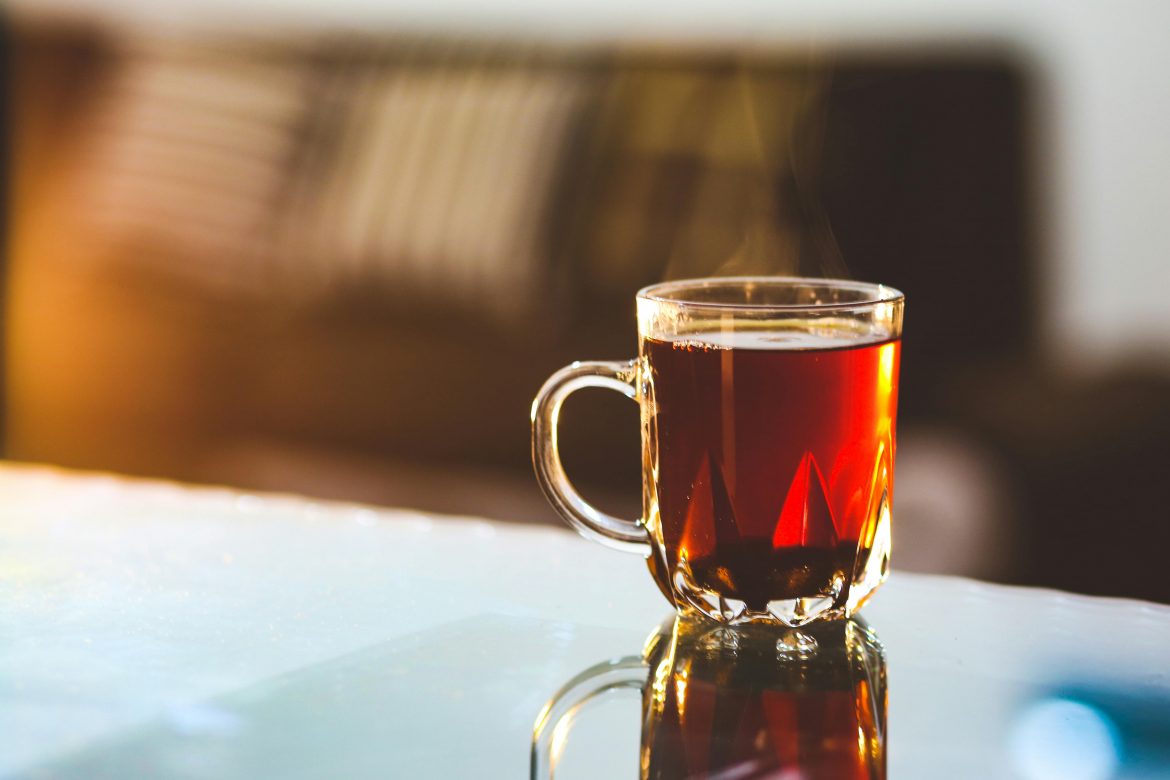Honeybush, also known as Heuningbos, bergtee and mountain tea, is a naturally sweet tea indigenous to South Africa. It’s closely related to Rooibos – stemming from the same fynbos biome grown across the Eastern and Western Cape. Honeybush is made from the Cyclopia species, and has distinct sweet, floral, and honey-like flavours. Honeybush is caffeine-free, with trace amounts of calcium, iron, zinc and beneficial plant compounds that have antioxidant activity. It’s been harvested and used to treat a variety of ailments since the 19th century, from influenza to soothing sunburn.
Health benefits
While studies suggest that honeybush tea has a wide range of health benefits, most studies focus on the plant’s antioxidants and concentrated extracts, rather than the tea itself. More research has to be done to identify how much of these compounds is found in a cup of tea and whether drinking it would hold the same benefits. That said, here are some of the potential benefits gained from consuming honeybush regularly:
- Rich in antioxidants: Honeybush tea is rich in polyphenols, a group of antioxidants that are attributed with potent anti-inflammatory and cancer-fighting effects.
- May have antidiabetic properties: Research shows that honeybush tea may help prevent, manage, and treat type 2 diabetes by lowering blood sugar levels with the stimulation of insulin secretion and the promotion of regenerating damaged pancreatic cells.
- May improve bone health: Two major antioxidants found in honeybush tea, mangiferin and hesperidin, may help protect your bones by reducing the breakdown of bone tissue and promoting bone recovery.
- May have cancer-fighting properties: Research suggests that the antioxidants present may help destroy cancerous cells, protect against cancer-promoting toxins, and inhibit the development of certain types of cancer.
- Boosts skin health: Both consuming and applying honeybush tea topically may boost your skin health. Studies suggest the tea protects skin cells from oxidation caused by UV radiation, reduces wrinkles and improves skin elasticity and hydration.
- Weight loss: Antioxidants present in the tea may additionally inhibit fat accumulation in young fat cells and stimulate fat breakdown.
- Relieve menopausal symptoms: This tea contains isoflavone, a compound that mimics the female hormone, estrogen, which may help alleviate menopausal symptoms.
- Immune system support: The antioxidant, magiferin, may enhance macrophage activity – a type of white blood cell that finds and digests foreign bodies.
- Alleviated respiratory symptoms: Honeybush tea is traditionally used as a tonic for colds, influenza, mucus buildup, and pulmonic tuberculosis.
Are there any side effects or precautions?
When honeybush leaves are harvested, they may be fermented, which can carry a risk of microbial contamination. It’s advised to always steep the leaves in water at 60ºC or hotter.
Consult your GP before consuming honeybush as a tea or concentrated extract, as it may affect drug-metabolising enzymes and affect the absorption of other antioxidants. Additionally, there is limited research on the effects of honeybush on pregnant and breastfeeding women. Rather, avoid consuming the tea or consult your GP.
How to drink honeybush tea
Honeybush tea is a naturally sweet and caffeine-free tea that can be enjoyed both hot and cold. Steep in freshly boiled water for at least 5 minutes and drink plain or with milk and a sweetener of your choice. You can also mix it with rooibos and spices to make a rooibos-honeybush chai tea. Or, steep and chill, serving over ice as a naturally sweet iced tea.
Honeybush is a uniquely South African, naturally sweet and caffeine-free tea with promising health benefits. When brewed properly, it’s a gentle daily drink you can safely include in your routine. Whether you prefer it steaming hot or ice cold, it’s an easy wellness habit to adopt.

